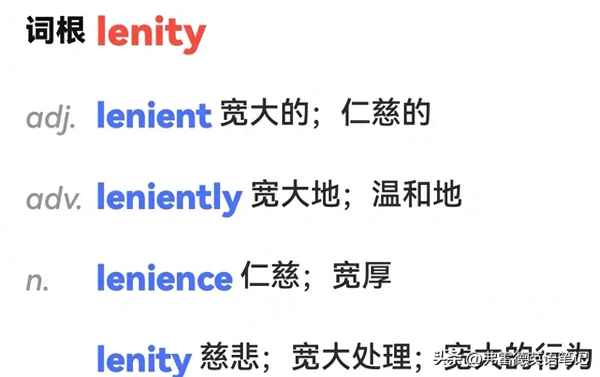焦点新闻正在直播英语怎么说、新闻直播 英语
全网首发原创 英语学习笔记
英文来源:维基百科
翻译及笔记:@ 弗雷德英语笔记
In social psychology, illusory superiority is a cognitive bias wherein a person overestimates their own qualities and abilities compared to other people. Illusory superiority is one of many positive illusions, relating to the self, that are evident in the study of intelligence, the effective performance of tasks and tests, and the possession of desirable personal characteristics and personality traits. Overestimation of abilities compared to an objective measure is known as the overconfidence effect.
在社会心理学中,虚幻的优越感是一种认知偏差,即一个人高估与其他人相比的自己的素质和能力。虚幻的优越感是许多与自我相关的积极幻想之一,这些幻想在智力研究、任务和测试的有效表现以及拥有理想的个人特征和人格特质方面都很明显。与客观衡量标准相比,对能力的高估被称为过度自信效应。
The term "illusory superiority" was first used by the researchers Van Yperen and Buunk, in 1991. The phenomenon is also known as the above-average effect, the superiority bias, the leniency error, the sense of relative superiority, the primus inter pares effect, and the Lake Wobegon effect, named after the fictional town where all the children are above average. The Dunning-Kruger effect is a form of illusory superiority shown by people on a task where their level of skill is low.
“虚幻的优越感”一词最早由研究人员范·耶佩伦(Van Yperen)和布恩克(Buunk)在 1991 年使用。这种现象也被称为高于平均水平效应、优势偏差、宽容错误、相对优势感、首屈一指效应和沃比冈湖效应等,以虚构的小镇命名,该小镇所有孩子都比平均水平优秀。邓宁-克效应也是一种虚幻的优越感,在技能水平低的人执行任务中有所表现。
A vast majority of the literature on illusory superiority originates from studies on participants in the United States. However, research that only investigates the effects in one specific population is severely limited as this may not be a true representation of human psychology. More recent research investigating self-esteem in other countries suggests that illusory superiority depends on culture. Some studies indicate that East Asians tend to underestimate their own abilities in order to improve themselves and get along with others.
关于虚幻优越感的大量文献都来自于对美国参与者的研究。然而,仅研究一个特定人群的影响是非常有限度的,因为这可能不是全人类心理学的真实表现。最近对其他国家自尊的研究表明,虚幻的优越感取决于文化。一些研究表明,东亚人往往低估自己的能力,以提升自己并与他人融洽相处。
Alicke and Govorun proposed the idea that, rather than individuals consciously reviewing and thinking about their own abilities, behaviors and characteristics and comparing them to those of others, it is likely that people instead have what they describe as an "automatic tendency to assimilate positively-evaluated social objects toward ideal trait conceptions". For example, if an individual evaluated themselves as honest, they would be likely to then exaggerate their characteristic towards their perceived ideal position on a scale of honesty. Importantly, Alicke noted that this ideal position is not always the top of the scale; for example, with honesty, someone who is always brutally honest may be regarded as rude—the ideal is a balance, perceived differently by different individuals.
阿利克和戈沃伦提出的观点是,人们不太可能有意识地回顾和思考自己的能力、行为和特征,并将其与他人的能力、行为和特征进行比较,而更可能的是拥有他们所描述的“将积极评价的社会对象同化到理想特征概念的自动趋势”。例如,如果一个人评价自己诚实,那么他们很可能会夸大自己在诚实度量表上的特征,使其接近他们所感知的理想位置。重要的是,阿利克指出,这个理想位置并不总是量表的顶部;例如,对于诚实,总是直言不讳的人可能被认为是粗鲁的——理想是一种平衡,不同的人有不同的看法。
Another explanation for how the better-than-average effect works is egocentrism. This is the idea that an individual places greater importance and significance on their own abilities, characteristics, and behaviors than those of others. Egocentrism is therefore a less overtly self-serving bias. According to egocentrism, individuals will overestimate themselves in relation to others because they believe that they have an advantage that others do not have, as an individual considering their own performance and another's performance will consider their performance to be better, even when they are in fact equal. Kruger (1999) found support for the egocentrism explanation in his research involving participant ratings of their ability on easy and difficult tasks. It was found that individuals were consistent in their ratings of themselves as above the median in the tasks classified as "easy" and below the median in the tasks classified as "difficult", regardless of their actual ability. In this experiment the better-than-average effect was observed when it was suggested to participants that they would be successful, but also a worse-than-average effect was found when it was suggested that participants would be unsuccessful.
另一个对优于平均水平效应如何运作的解释是自我中心主义。这是一种观点,即个人对自己的能力、特征和行为的重视和意义要超过他人的能力、特征和行为。因此,自我中心主义是一种不那么明显的利己偏差。根据自我中心主义,个人会高估自己与他人的关系,因为他们相信自己具有别人所不具备的优势,因为一个人在考虑自己的表现和另一个人的表现时,会认为自己的表现更好,即使实际上是水平相同的。克(Kruger,1999)在他涉及参与者对简单和困难任务的能力评分的研究中发现了对自我中心主义解释的支持。研究发现,个体对自己在被归类为“容易”的任务中的评分始终高于中位数,而在被归类为“困难”的任务中的评分则低于中位数,无论他们的实际能力如何。在这个实验中,当向参与者表明他们会成功时,观察到了优于平均水平的效应,但当向参与者表明他们会失败时,也发现了低于平均水平的效应。
Yet another explanation for the better-than-average effect is "focalism", the idea that greater significance is placed on the object that is the focus of attention. Most studies of the better-than-average effect place greater focus on the self when asking participants to make comparisons (the question will often be phrased with the self being presented before the comparison target—"compare yourself to the average person"). According to focalism this means that the individual will place greater significance on their own ability or characteristic than that of the comparison target. This also means that in theory if, in an experiment on the better-than-average effect, the questions were phrased so that the self and other were switched (e.g., "compare the average peer to yourself") the better-than-average effect should be lessened.
对于“优于平均效应”的另一种解释是“锚定主义”,即人们会更加重视所关注的对象。大多数关于“优于平均效应”的研究在要求参与者进行比较时,会更加关注自我(问题通常会用自我来表述,然后再提出比较的目标——“将自己与普通人进行比较”)。根据锚定主义,这意味着个人会更加重视自己的能力或特征,而不是比较目标的能力或特征。这也就意味着,从理论上讲,如果在关于“优于平均效应”的实验中,问题的表述方式是将自我和他人进行调换(例如,“将普通同龄人与自己进行比较”),那么“优于平均效应”应该会减弱。
Research into focalism has focused primarily on optimistic bias rather than the better-than-average effect. However, two studies found a decreased effect of optimistic bias when participants were asked to compare an average peer to themselves, rather than themselves to an average peer.
对锚定主义的研究主要集中在乐观偏见上,而不是“优于平均效应”。然而,有两项研究发现,当参与者被要求将普通同龄人与自己进行比较,而不是将自己与普通同龄人进行比较时,乐观偏见的影响会减少。
Windschitl, Kruger & Simms (2003) have conducted research into focalism, focusing specifically on the better-than-average effect, and found that asking participants to estimate their ability and likelihood of success in a task produced results of decreased estimations when they were asked about others' chances of success rather than their own.
温施特尔、克和西姆斯(2003)对锚定主义进行了研究,特别关注了“优于平均效应”,发现当要求参与者估计自己在计划一项任务中的能力和成功的可能性时,如果他们被问到的是其他人成功的机会,而不是他们自己的,那么估计结果会降低。
A 2012 Psychological Bulletin suggests that illusory superiority, as well as other biases, can be explained by an information-theoretic generative mechanism that assumes observation (a noisy conversion of objective evidence) into subjective estimates (judgment). The study suggests that the underlying cognitive mechanism is saimilar to the noisy mixing of memories that cause the conservatism bias or overconfidence: re-adjustment of estimates of our own performance after our own performance are adjusted differently than the re-adjustments regarding estimates of others' performances. Estimates of the scores of others are even more conservative (more influenced by the previous expectation) than our estimates of our own performance (more influenced by the new evidence received after giving the test). The difference in the conservative bias of both estimates (conservative estimate of our own performance, and even more conservative estimate of the performance of others) is enough to create illusory superiority.
2012 年的一份《心理公报》指出,虚幻的优越感以及其他偏差可以用一种信息理论的生成机制来解释,该机制假定观察(对客观证据的嘈杂转换)转化为主观估计(判断)。该研究表明,潜在的认知机制与导致保守偏差或过度自信的记忆嘈杂混合类似:在自己的表现被调整后,对自己表现的估计的重新调整与对他人表现的估计的重新调整不同。对他人分数的估计甚至更加保守(受先前预期的影响更大),而对自己表现的估计(受考试后收到的新证据的影响更大)。这两种估计的保守偏差的差异(对自己表现的保守估计,以及对他人表现的更保守的估计)足以产生虚幻的优越感。
Since mental noise is a sufficient explanation that is much simpler and more straightforward than any other explanation involving heuristics, behavior, or social interaction, the Occam's razor principle argues in its favor as the underlying generative mechanism (it is the hypothesis which makes the fewest assumptions).
由于心理噪声是一种充分的解释,它比任何涉及启发式、行为或社会互动的其他解释都要简单和直接得多,因此奥卡姆剃刀原理认为它是潜在的生成机制(它是假设最少的假设)。
Selective recruitment is the notion that an individual selects their own strengths and the other's weaknesses when making peer comparisons, in order that they appear better on the whole. This theory was first tested by Weinstein (1980); however, this was in an experiment relating to optimistic bias, rather than the better-than-average effect. The study involved participants rating certain behaviors as likely to increase or decrease the chance of a series of life events happening to them. It was found that individuals showed less optimistic bias when they were allowed to see others' answers.
选择性招募是指个人在与同伴做比较时,会选择自己的优势和他人的弱点,以便达到更好的整体效果。这一理论首先由温斯坦(1980)进行了测试;然而,这是在一个与乐观偏差有关的实验中实施的,而并非“优于平均效应”的实验。该研究要求参与者对某些行为进行评分,这些行为可能会增加或减少一系列生活事件发生在他们身上的机会。研究发现,当允许参与者看到他人的答案时,个体表现出的乐观偏差较少。
Perloff and Fetzer (1986) suggested that when making peer comparisons on a specific characteristic, an individual chooses a comparison target—the peer to whom he is being compared—with lower abilities. To test this theory, Perloff and Fetzer asked participants to compare themselves to specific comparison targets like a close friend, and found that illusory superiority decreased when they were told to envision a specific person rather than vague constructs like "the average peer". However, these results are not completely reliable and could be affected by the fact that individuals like their close friends more than an "average peer" and may as a result rate their friend as being higher than average, therefore the friend would not be an objective comparison target.
佩洛夫和费泽(1986)提出,在对特定特征进行同伴比较时,个人会选择能力较低的比较目标——与之进行比较的同伴。为了验证这一理论,佩洛夫和费泽要求参与者将自己与特定的比较目标(如亲密朋友)进行比较,发现当他们被告知要想象一个特定的人而不是像“普通同伴”这样模糊的概念时,虚幻的优越感会降低。然而,这些结果并不完全可靠,可能会受到这样一个事实的影响:与相比“普通同伴”参与者更喜欢他们的亲密朋友,因此可能会将他们的朋友评价为高于平均水平,所以朋友并非客观的比较目标。
This idea, put forward by Giladi and Klar, suggests that when making comparisons any single member of a group will tend to evaluate themselves to rank above that group's statistical mean performance level or the median performance level of its members. For example, if an individual is asked to assess their own skill at driving compared to the rest of the group, they are likely to rate themself as an above-average driver. Furthermore, the majority of the group is likely to rate themselves as above average. Research has found this effect in many different areas of human performance and has even generalized it beyond individuals' attempts to draw comparisons involving themselves. Findings of this research therefore suggest that rather than individuals evaluating themselves as above average in a self-serving manner, the better-than-average effect is actually due to a general tendency to evaluate any single person or object as better than average.
吉尔阿迪和克拉尔提出的这一观点表明,在进行比较时,群体中的任何单个成员都倾向于评估自己的排名高于该群体的统计平均绩效水平或其成员的中位数绩效水平。例如,如果要求个人评估自己与群体其他成员相比的驾驶技能,他们可能会将自己评为高于平均水平的司机。此外,大多数群体成员可能会认为自己高于平均水平。研究发现,这种效应在人类表现的许多不同领域都有体现,甚至已经超越了个人试图进行涉及自身比较的范畴。因此,这项研究的结果表明,不是个人以利己的方式评价自己高于平均水平,“优于平均效应”实际上是由于普遍倾向于评价任何单个的人或物体优于平均水平。
The better-than-average effect may not have wholly social origins—judgments about inanimate objects suffer similar distortions.
“优于平均效应”可能并不完全源于社会因素——对无生命物体的判断也会受到类似的畸变。
The degree to which people view themselves as more desirable than the average person links to reduced activation in their orbitofrontal cortex and dorsal anterior cingulate cortex. This is suggested to link to the role of these areas in processing "cognitive control".
人们认为自己比一般人更受欢迎的程度与他们的眶额叶皮层和背侧前扣带回皮层的激活减少有关。这表明这些区域与“认知控制”的处理有关。
Illusory superiority has been found in individuals' comparisons of themselves with others in a variety of aspects of life, including performance in academic circumstances (such as class performance, exams and overall intelligence), in working environments (for example in job performance), and in social settings (for example in estimating one's popularity, or the extent to which one possesses desirable personality traits, such as honesty or confidence), and in everyday abilities requiring particular skill.
研究者在个人与他人在生活的各个方面进行比较时,都发现了虚幻的优越感,包括在学术环境中的表现(如课堂表现、考试和整体智力)、工作环境(例如工作表现)、社会环境(例如估计自己的受欢迎程度,或自己拥有理想人格特质的程度,如诚实或自信),以及在需要特定技能的日常能力方面。
For illusory superiority to be demonstrated by social comparison, two logical hurdles have to be overcome. One is the ambiguity of the word "average". It is logically possible for nearly all of the set to be above the mean if the distribution of abilities is highly skewed. For example, the mean number of legs per human being is slightly lower than two because some people have fewer than two and almost none have more. Hence experiments usually compare subjects to the median of the peer group, since by definition it is impossible for a majority to exceed the median.
要通过社会比较来展示虚幻的优越感,必须克服两个逻辑障碍。一个是“平均”一词的模糊性。如果能力分布高度倾斜,那么在逻辑上,几乎所有的集合都可能高于平均值。例如,人类平均每条腿的数量略低于两条,因为有些人的腿少于两条,而且几乎没有人的腿多于两条。因此,实验通常将受试者与同伴群体的中位数进行比较,因为根据定义,大多数人不可能超过中位数。
A further problem in inferring inconsistency is that subjects might interpret the question in different ways, so it is logically possible that a majority of them are, for example, more generous than the rest of the group each on "their own understanding" of generosity. This interpretation is confirmed by experiments which varied the amount of interpretive freedom. As subjects evaluated themselves on a specific, well-defined attribute, illusory superiority remains.
推断不一致的另一个问题是,受试者可能会以不同的方式来解释问题,因此从逻辑上讲,例如,他们中的大多数人可能在“他们自己对慷慨的理解”上比其他群体更慷慨。这种解释通过改变解释自由程度的实验得到了证实。当受试者对一个特定的、明确的属性进行自我评估时,虚幻的优越感仍然存在。
In a survey of faculty at the University of Nebraska–Lincoln, 68% rated themselves in the top 25% for teaching ability, and 94% rated themselves as above average.
在内布拉斯加-林肯大学的一项教师调查中,68%的人认为自己的教学能力处于前 25%,94%的人认为自己高于平均水平。
In a similar survey, 87% of Master of Business Administration students at Stanford University rated their academic performance as above the median.
在一项类似的调查中,斯坦福大学的 87%的工商管理硕士学生将自己的学习成绩评为中位数以上。
Illusory superiority has also explained phenomena such as the large amount of stock market trading (as each trader thinks they are the best, and most likely to succeed), and the number of lawsuits that go to trial (because, due to illusory superiority, many lawyers have an inflated belief that they will win a case).
虚幻的优越感也解释了一些现象,比如为什么存在大量的股票市场交易(因为每个交易者都认为自己是最好的,最有可能成功),以及进入审判的诉讼数量(因为,由于虚幻的优越感,许多律师对自己能赢得一个案件抱有夸大的信念)。
Main article: Dunning–Kruger effect 主要文章:邓宁-克效应
In Kruger and Dunning's experiments, participants were given specific tasks (such as solving logic problems, analyzing grammar questions, and determining whether jokes were funny), and were asked to evaluate their performance on these tasks relative to the rest of the group, enabling a direct comparison of their actual and perceived performance.
在克和邓宁的实验中,参与者被分配特定的任务(如解决逻辑问题、分析语法问题和判断笑话是否有趣),并被要求根据其他组的表现来评估自己在这些任务上的表现,从而能够直接比较他们的实际表现和感知表现。
Results were divided into four groups depending on actual performance and it was found that all four groups evaluated their performance as above average, meaning that the lowest-scoring group (the bottom 25%) showed a very large illusory superiority bias. The researchers attributed this to the fact that the individuals who were worst at performing the tasks were also worst at recognizing skill in those tasks. This was supported by the fact that, given training, the worst subjects improved their estimate of their rank as well as getting better at the tasks. The paper, titled "Unskilled and Unaware of It: How Difficulties in Recognizing One's Own Incompetence Lead to Inflated Self-Assessments", won an Ig Nobel Prize in 2000.
结果根据实际表现分为四组,发现所有四组都评价自己的表现高于平均水平,这意味着得分最低的组(排名最后的 25%)表现出非常大的虚幻优越感偏差。研究人员将这归因于那些最不擅长执行任务的人也最不擅长识别这些任务中的技能。这一点得到了这样一个事实的支持:经过培训,最差的受试者提高了对自己排名的估计,同时也提高了完成任务的能力。这篇题为“不熟练且不知道:难以认识到自己的无能如何导致夸大的自我评估”的论文在 2000 年获得了搞笑诺贝尔奖。
In 2003 Dunning and Joyce Ehrlinger, also of Cornell University, published a study that detailed a shift in people's views of themselves influenced by external cues. Cornell undergraduates were given tests of their knowledge of geography, some intended to positively affect their self-views, others intended to affect them negatively. They were then asked to rate their performance, and those given the positive tests reported significantly better performance than those given the negative.
2003 年,康奈尔大学的邓宁和乔伊斯·埃尔林格发表了一项研究,详细描述了人们对外界线索影响下自身观点的转变。康奈尔大学的本科生接受了地理知识测试,一些测试旨在积极影响他们的自我观点,另一些则旨在产生负面影响。然后要求他们对自己的表现进行评分,那些接受积极测试的人报告的表现明显好于那些接受消极测试的人。
Daniel Ames and Lara Kammrath extended this work to sensitivity to others, and the subjects' perception of how sensitive they were. Research by Burson, Larrick, and Klayman suggests that the effect is not so obvious and may be due to noise and bias levels.
丹尼尔·埃姆斯和劳拉·卡姆拉斯将这项工作扩展到对他人的敏感性,以及受试者对自己敏感程度的感知。伯森、拉里克和克莱曼的研究表明,这种影响并不那么明显,可能是由于受到噪音和偏差水平的影响。
Dunning, Kruger, and coauthors' latest paper[when?] on this subject comes to qualitatively similar conclusions[clarification needed] after making some attempt to test alternative explanations.
邓宁、克和共同作者关于这个主题的最新论文[时间不详]在对其他解释进行了一些尝试测试后,得出了定性相似的结论[需要澄清]。
Svenson (1981) surveyed 161 students in Sweden and the United States, asking them to compare their driving skills and safety to other people's. For driving skills, 93% of the U.S. sample and 69% of the Swedish sample put themselves in the top 50%; for safety, 88% of the U.S. and 77% of the Swedish put themselves in the top 50%.
斯文森(1981)调查了 161 名瑞典和美国的学生,要求他们将自己的驾驶技术及驾驶安全与其他人进行比较。在驾驶技术方面,93%的美国样本和 69%的瑞典样本将自己排在前 50%;在安全方面,88%的美国人和 77%的瑞典人将自己排在前 50%。
McCormick, Walkey and Green (1986) found similar results in their study, asking 178 participants to evaluate their position on eight different dimensions of driving skills (examples include the "dangerous–safe" dimension and the "considerate–inconsiderate" dimension). Only a small minority rated themselves as below the median, and when all eight dimensions were considered together it was found that almost 80% of participants had evaluated themselves as being an above-average driver.
麦考密克、沃尔基和格林(1986)在他们的研究中发现了类似的结果,他们要求 178 名参与者对自己在驾驶技能的八个不同维度上的排名进行评估(例如,“危险-安全”维度和“体贴-不体贴”维度)。只有一小部分人将自己评价为低于中位数,当考虑所有八个维度时,发现几乎 80%的参与者将自己评价为高于平均水平的司机。
One commercial survey showed that 36% of drivers believed they were an above-average driver while texting or sending emails compared to other drivers; 44% considered themselves average, and 18% below average.
一项商业调查显示,36%的司机认为与其他司机相比,自己在发短信或发送电子邮件时是一名高于平均水平的司机;44%的人认为自己一般,18%的人认为自己低于平均水平。
Illusory superiority was found in a self-report study of health behaviors (Hoorens & Harris, 1998) that asked participants to estimate how often they and their peers carried out healthy and unhealthy behaviors. Participants reported that they carried out healthy behaviors more often than the average peer, and unhealthy behaviors less often. The findings held even for expected future behavior.
在一项关于健康行为的自我报告研究中发现了虚幻的优越感(Hoorens & Harris, 1998),该研究要求参与者估计他们和自己的同伴进行健康和不健康行为的频率。参与者报告说,他们比一般的同伴更经常地进行健康行为,而不健康行为则更少。即使是对预期的未来行为,这一发现也成立。
Main article: Bias blind spot
主要文章:偏见盲点
Subjects describe themselves in positive terms compared to other people, and this includes describing themselves as less susceptible to bias than other people. This effect is called the "bias blind spot" and has been demonstrated independently[citation needed].
受试者用积极的术语来描述自己与其他人相比,这包括描述自己比其他人更不容易受到偏见的影响。这种效应被称为“偏见盲点”,已经被独立证明[此段文字需要引用]。
One of the main effects of illusory superiority in IQ is the "Downing effect". This describes the tendency of people with a below-average IQ to overestimate their IQ, and of people with an above-average IQ to underestimate their IQ (similar trend to the Dunning-Kruger effect). This tendency was first observed by C. L. Downing, who conducted the first cross-cultural studies on perceived intelligence. His studies also showed that the ability to accurately estimate other people's IQs was proportional to one's own IQ (i.e., the lower the IQ, the less capable of accurately appraising other people's IQs). People with high IQs are better overall at appraising other people's IQs, but when asked about the IQs of people with similar IQs as themselves, they are likely to rate them as having higher IQs.[source needed]
虚幻优越感在智商方面的主要影响之一是“唐宁效应”。这描述了智商低于平均水平的人高估自己的智商,而智商高于平均水平的人低估自己的智商的趋势(与邓宁-克效应类似)。这种趋势最早是由 C.L.唐宁观察到的,他进行了第一项关于感知智力的跨文化研究。他的研究还表明,准确估计他人智商的能力与自己的智商成正比(即,智商越低,准确评估他人智商的能力就越低)。高智商的人总体上更善于评估他人的智商,但当被问及与自己智商相似的人的智商时,他们可能会评价他们有更高的智商。[需要备注来源]
The disparity between actual IQ and perceived IQ has also been noted between genders by British psychologist Adrian Fudddnham, in whose work there was a suggestion that, on average, men are more likely to overestimate their intelligence by 5 points, while women are more likely to underestimate their IQ by a similar margin.
英国心理学家阿德里安·福登汉姆也注意到了实际智商和感知智商之间的性别差异,在他的研究中,有迹象表明,平均而言,男性更有可能高估自己的智力 5 分,而女性更有可能低估自己的智商类似的幅度。
Illusory superiority has been found in studies comparing memory self-reports, such as Schmidt, Berg & Deelman's research in older adults. This study involved participants aged between 46 and 89 years of age comparing their own memory to that of peers of the same age group, 25-year-olds and their own memory at age 25. This research showed that participants exhibited illusory superiority when comparing themselves to both peers and younger adults, however the researchers asserted that these judgments were only slightly related to age.
在比较记忆自我报告的研究中也发现了虚幻的优越感,例如Schmidt、Berg 和 Deelman 对老年人的研究。这项研究涉及 46 至 89 岁的参与者将自己的记忆与同龄人群、25 岁的年轻人以及自己 25 岁时的记忆进行比较。这项研究表明,参与者在与同龄人和年轻人比较时都表现出了虚幻的优越感,然而研究人员断言这些判断与年龄只有轻微的关系。
In Zuckerman and Jost's study, participants were given detailed questionnaires about their friendships and asked to assess their own popularity. Using social network analysis, they were able to show that participants generally had exaggerated perceptions of their own popularity, especially in comparison to their own friends.
在祖克曼和乔斯特的研究中,参与者被给予关于他们友谊的详细问卷,并要求评估自己的受欢迎程度。通过社会网络分析,他们能够表明参与者通常对自己的受欢迎程度有夸大的看法,尤其是与他们自己的朋友相比。
Despite the fact that most people in the study believed that they had more friends than their friends, a 1991 study by sociologist Scott L. Feld on the friendship paradox shows that on average, due to sampling bias, most people have fewer friends than their friends have.
尽管研究中的大多数人认为自己的朋友比他们的朋友多,但社会学家斯科特·L·费尔德在 1991 年关于友谊悖论的研究表明,由于抽样偏差,平均而言,大多数人的朋友比他们的朋友少。
Researchers have also found illusory superiority in relationship satisfaction. For example, one study found that participants perceived their own relationships as better than others' relationships on average, but thought that the majority of people were happy with their relationships. It also found evidence that the higher the participants rated their own relationship happiness, the more superior they believed their relationship was—illusory superiority also increased their own relationship satisfaction. This effect was pronounced in men, whose satisfaction was especially related to the perception that one's own relationship was superior as well as to the assumption that few others were unhappy in their relationships. On the other hand, women's satisfaction was particularly related to the assumption that most people were happy with their relationship. One study[citation needed] found that participants became defensive when their spouse or partner were perceived by others to be more successful in any aspect of their life, and had the tendency to exaggerate their success and understate their spouse or partner's success.
研究人员还发现了关系满意度中的虚幻优越感。例如,一项研究发现,参与者认为自己的关系比其他人相比关系更好,但是又认为大多数人对自己的关系感到满意。研究还发现证据表明,参与者对自己关系幸福的评价越高,他们就越认为自己的关系优越——虚幻的优越感也增加了他们自己的关系满意度。这种影响在男性中更为明显,他们的满意度尤其与认为自己的关系优越以及认为很少有其他人对他们的关系不满意有关。另一方面,女性的满意度尤其与认为大多数人对自己的关系感到满意有关。一项研究[需要备注引用]发现,当他们的配偶或伴侣被其他人认为在生活的任何方面都更成功时,参与者会变得具有防御性,并有夸大自己成功和低估配偶或伴侣成功的倾向。
One of the first studies that found illusory superiority was carried out in the United States by the College Board in 1976. A survey was attached to the SAT exams (taken by one million students annually), asking the students to rate themselves relative to the median of the sample (rather than the average peer) on a number of vague positive characteristics. In ratings of leadership, 70% of the students put themselves above the median. In ability to get on well with others, 85% put themselves above the median; 25% rated themselves in the top 1%.
最早发现虚幻优越感的研究之一是由美国大学理事会在 1976 年进行的。在 SAT 考试(每年有 100 万学生参加)中附上了一项调查,要求学生根据样本的中位数(而不是普通同龄人)对自己的一系列模糊的积极特征进行评分。在领导力方面,70%的学生认为自己高于中位数。在与他人相处的能力方面,85%的学生认为自己高于中位数;25%的人将自己评为前 1%。
A 2002 study on illusory superiority in social settings, with participants comparing themselves to friends and other peers on positive characteristics (such as punctuality and sensitivity) and negative characteristics (such as naivety or inconsistency). This study found that participants rated themselves more favorably than their friends, but rated their friends more favorably than other peers (but there were several moderating factors).
2002 年一项关于社会环境中虚幻优越感的研究,要求参与者将自己与朋友和其他同龄人在积极特征(如守时和敏感)和消极特征(如天真或不一致)上进行比较。这项研究发现,参与者对自己的评价比他们的朋友的更有利,但对他们的朋友的评价比其他同龄人更有利(但有几个调节因素)。
Research by Perloff and Fetzer, Brown, and Henri Tajfel and John C. Turner also found friends being rated higher than other peers. Tajfel and Turner attributed this to an "ingroup bias" and suggested that this was motivated by the individual's desire for a "positive social identity".
佩洛夫和费策、布朗以及亨利· Tajfel 和约翰·C·特纳的研究也发现朋友的评价比其他同龄人高。 Tajfel 和 Turner 将此归因于“内群体偏见”,并认为这是由于个人对“积极的社会认同”的渴望。
While illusory superiority has been found to be somewhat self-serving, this does not mean that it will predictably occur—it is not constant. The strength of the effect is moderated by many factors, the main examples of which have been summarized by Alicke and Govorun (2005).
虽然虚幻的优越感被发现有点自私自利,但这并不意味着它会预期发生——它不是恒定的。这种影响的强度受到许多因素的调节,Alicke 和 Govorun(2005)总结了主要例证。
This is a phenomenon that Alicke and Govorun have described as "the nature of the judgement dimension" and refers to how subjective (abstract) or objective (concrete) the ability or characteristic being evaluated is. Research by Sedikides & Strube (1997) has found that people are more self-serving (the effect of illusory superiority is stronger) when the event in question is more open to interpretation, for example social constructs such as popularity and attractiveness are more interpretable than characteristics such as intelligence and physical ability. This has been partly attributed also to the need for a believable self-view.
这是 Alicke 和 Govorun 所描述的“判断维度的性质”的一种现象,指的是正在评估的能力或特征是多么主观(抽象)或客观(具体)。Sedikides & Strube(1997)的研究发现,当所讨论的事件更容易解释时,人们更自私(虚幻优越感的影响更强),例如,像受欢迎程度和吸引力这样的社会结构比智力和身体能力等特征更具解释性。这在一定程度上也归因于对可信自我观点的需求。
The idea that ambiguity moderates illusory superiority has empirical research support from a study involving two conditions: in one, participants were given criteria for assessing a trait as ambiguous or unambiguous, and in the other participants were free to assess the traits according to their own criteria. It was found that the effect of illusory superiority was greater in the condition where participants were free to assess the traits.
模糊性调节虚幻优越感的观点得到了一项涉及两种情况的实证研究的支持:在一种情况下,向参与者提供了评估模糊或明确特质的标准,而在另一种情况下,参与者可以根据自己的标准自由评估特质。研究发现,在参与者可以自由评估特质的情况下,虚幻优越感的影响更大。
The effects of illusory superiority have also been found to be strongest when people rate themselves on abilities at which they are totally incompetent. These subjects have the greatest disparity between their actual performance (at the low end of the distribution) and their self-rating (placing themselves above average). This Dunning–Kruger effect is interpreted as a lack of metacognitive ability to recognize their own incompetence.
当人们对自己完全不胜任的能力进行评分时,也发现虚幻优越感的影响最强。这些受试者的实际表现(处于分布的低端)与他们的自我评价(将自己置于平均水平之上)之间存在最大的差距。这种邓宁-克效应被解释为缺乏认识自己无能的元认知能力。
The method used in research into illusory superiority has been found to have an implication on the strength of the effect found. Most studies into illusory superiority involve a comparison between an individual and an average peer, of which there are two methods: direct comparison and indirect comparison. A direct comparison—which is more commonly used—involves the participant rating themselves and the average peer on the same scale, from "below average" to "above average" and results in participants being far more self-serving. Researchers have suggested that this occurs due to the closer comparison between the individual and the average peer, however use of this method means that it is impossible to know whether a participant has overestimated themselves, underestimated the average peer, or both.
研究者发现研究虚幻优越感时使用的方法对所发现的效果强度有影响。大多数对虚幻优越感的研究都涉及到个人与普通同龄人的比较,有两种方法:直接比较和间接比较。直接比较——更常用——涉及到参与者对自己和普通同龄人在同一尺度上的评分,从“低于平均水平”到“高于平均水平”,结果是参与者更加自私。研究人员认为,这是由于个人与普通同龄人之间的比较更接近,但使用这种方法意味着不可能知道参与者是高估了自己,还是低估了普通同龄人,或者两者兼而有之。
The indirect method of comparison involves participants rating themselves and the average peer on separate scales and the illusory superiority effect is found by taking the average peer score away from the individual's score (with a higher score indicating a greater effect). While the indirect comparison method is used less often it is more informative in terms of whether participants have overestimated themselves or underestimated the average peer, and can therefore provide more information about the nature of illusory superiority.
间接比较的方法涉及到参与者对自己和普通同龄人在不同尺度上的评分,虚幻优越感的效果是通过从个体得分中减去普通同龄人的得分来发现的(得分越高表明效果越强)。虽然间接比较方法使用较少,但在参与者是否高估了自己或低估了普通同龄人方面提供了更多信息,因此可以提供更多关于虚幻优越感本质的信息。
The nature of the comparison target is one of the most fundamental moderating factors of the effect of illusory superiority, and there are two main issues relating to the comparison target that need to be considered.
比较目标的性质是虚幻优越感效应的最基本的调节因素之一,有两个与比较目标相关的主要问题需要考虑。
First, research into illusory superiority is distinct in terms of the comparison target because an individual compares themselves with a hypothetical average peer rather than a tangible person. Alicke et al. (1995) found that the effect of illusory superiority was still present but was significantly reduced when participants compared themselves with real people (also participants in the experiment, who were seated in the same room), as opposed to when participants compared themselves with an average peer. This suggests that research into illusory superiority may itself be biasing results and finding a greater effect than would actually occur in real life.
首先,对虚幻优越感的研究在比较目标方面是不同的,因为个人将自己与假设的普通同龄人进行比较,而不是与具体的人进行比较。Alicke 等人(1995)发现,当参与者与真实的人(也是实验中的参与者,坐在同一个房间里)进行比较时,虚幻优越感的效果仍然存在,但明显减少,而当参与者与普通同龄人进行比较时则不同。这表明,对虚幻优越感的研究本身可能会使结果产生偏差,并发现比实际生活中实际发生的效果更大。
Further research into the differences between comparison targets involved four conditions where participants were at varying proximity to an interview with the comparison target: watching live in the same room; watching on tape; reading a written transcript; or making self-other comparisons with an average peer. It was found that when the participant was further removed from the interview situation (in the tape observation and transcript conditions) the effect of illusory superiority was found to be greater. Researchers asserted that these findings suggest that the effect of illusory superiority is reduced by two main factors—individuation of the target and live contact with the target.
对比较目标差异的进一步研究涉及到四个条件,在这些条件下,参与者与面试的比较目标的接近程度不同:在同一个房间里现场观看;观看磁带;阅读书面记录;或与普通同龄人进行自我与他人的比较。研究发现,当参与者与面试情况的距离更远(在磁带观察和记录条件下)时,虚幻优越感的效果更大。研究人员断言,这些发现表明,虚幻优越感的效果通过两个主要因素得到减轻——目标的个体化和与目标的现场接触。
Second, Alicke et al.'s (1995) studies investigated whether the negative connotations to the word "average" may have an effect on the extent to which individuals exhibit illusory superiority, namely whether the use of the word "average" increases illusory superiority. Participants were asked to evaluate themselves, the average peer and a person whom they had sat next to in the previous experiment, on various dimensions. It was found that they placed themselves highest, followed by the real person, followed by the average peer, however the average peer was consistently placed above the mean point on the scale, suggesting that the word "average" did not have a negative effect on the participant's view of the average peer.
其次,Alicke 等人(1995)的研究调查了“平均”一词的负面含义是否会对个人表现出虚幻优越感的程度产生影响,即“平均”一词的使用是否会增加虚幻优越感。参与者被要求在各个方面评价自己、普通同龄人以及他们在之前实验中坐在旁边的人。结果发现,他们把自己排在最高位,其次是真实的人,其次是普通同龄人,然而普通同龄人一直被排在量表的平均点之上,这表明“平均”一词对参与者对普通同龄人的看法没有负面影响。
An important moderating factor of the effect of illusory superiority is the extent to which an individual believes they are able to control and change their position on the dimension concerned. According to Alicke & Govorun positive characteristics that an individual believes are within their control are more self-serving, and negative characteristics that are seen as uncontrollable are less detrimental to self-enhancement. This theory was supported by Alicke's (1985) research, which found that individuals rated themselves as higher than an average peer on positive controllable traits and lower than an average peer on negative uncontrollable traits. The idea, suggested by these findings, that individuals believe that they are responsible for their success and some other factor is responsible for their failure is known as the self-serving bias.
虚幻优越感效应的一个重要调节因素是个人认为自己能够控制和改变所关注维度的程度。根据 Alicke & Govorun 的观点,个人认为在其控制范围内的积极特征更具自利性,而被视为无法控制的消极特征对自我提升的危害较小。这一理论得到了 Alicke(1985)的研究支持,该研究发现,个人在积极可控特征上的评分高于普通同龄人,在消极不可控特征上的评分低于普通同龄人。这些发现所提出的观点,即个人认为他们对自己的成功负责,而其他一些因素对他们的失败负责,被称为自利偏差。
Personality characteristics vary widely between people and have been found to moderate the effects of illusory superiority, one of the main examples of this is self-esteem. Brown (1986) found that in self-evaluations of positive characteristics participants with higher self-esteem showed greater illusory superiority bias than participants with lower self-esteem. Additionally, another study found that participants pre-classified as having high self-esteem tended to interpret ambiguous traits in a self-serving way, whereas participants pre-classified as having low self-esteem did not do this.
人与人之间的性格特征差异很大,研究已发现可以调节虚幻优越感的影响,其中一个主要例子是自尊。Brown(1986)发现,在对积极特征的自我评价中,自尊较高的参与者表现出比自尊较低的参与者更大的虚幻优越感偏差。此外,另一项研究发现,被预先分类为自尊较高的参与者倾向于以自利的方式解释模糊的特征,而被预先分类为自尊较低的参与者则不会这样做。
Main article: Depressive realism
主要文章:抑郁现实主义
Psychology has traditionally assumed that generally accurate self-perceptions are essential to good mental health. This was challenged by a 1988 paper by Taylor and Brown, who argued that mentally healthy individuals typically manifest three cognitive illusions—illusory superiority, illusion of control, and optimism bias. This idea rapidly became very influential, with some authorities concluding that it would be therapeutic to deliberately induce these biases. Since then, further research has both undermined that conclusion and offered new evidence associating illusory superiority with negative effects on the individual.
心理学传统上认为,准确的自我认知对于良好的心理健康至关重要。这一观点受到了 1988 年 Taylor 和 Brown 的一篇论文的挑战,他们认为心理健康的个人通常表现出三种认知错觉——虚幻优越感、控制错觉和乐观偏差。这一观点迅速产生了很大的影响,一些权威人士得出结论,故意诱导这些偏差可能具有治疗效果。从那以后,进一步的研究既破坏了这一结论,又提供了将虚幻优越感与对个人的负面影响联系起来的新证据。
One line of argument was that in the Taylor and Brown paper, the classification of people as mentally healthy or unhealthy was based on self-reports rather than objective criteria. People prone to self-enhancement would exaggerate how well-adjusted they are. One study claimed that "mentally normal" groups were contaminated by "defensive deniers", who are the most subject to positive illusions. A longitudinal study found that self-enhancement biases were associated with poor social skills and psychological maladjustment. In a separate experiment where videotaped conversations between men and women were rated by independent observers, self-enhancing individuals were more likely to show socially problematic behaviors such as hostility or irritability. A 2007 study found that self-enhancement biases were associated with psychological benefits (such as subjective well-being) but also inter- and intra-personal costs (such as anti-social behavior).
一种论点是,在 Taylor 和 Brown 的论文中,对人心理健康或不健康的分类是基于自我报告而不是客观标准。容易自我提升的人会夸大自己的适应能力。一项研究声称,“心理正常”组受到了“防御性否认者”的污染,他们最容易受到积极的幻想。一项纵向研究发现,自我提升偏差与社会技能差和心理失调有关。在一项单独实验中,男性和女性之间的录像对话由独立的观察者进行评分,自我提升的个体更有可能表现出诸如敌意或易怒等社会问题行为。2007 年的一项研究发现,自我提升偏差与心理益处(如主观幸福感)有关,但也与人际和个人成本(如反社会行为)有关。
Main article: Worse-than-average effect
主要文章:差于平均效应
In contrast to what is commonly believed, research has found that better-than-average effects are not universal. In fact, much recent research has found the opposite effect in many tasks, especially if they were more difficult.
与普遍认为的相反,研究发现,优于平均效应并非普遍存在。事实上,最近的许多研究在许多任务中发现了相反的效果,特别是如果任务更困难时。
Main article: Self-esteem
主要文章:自尊
Illusory superiority's relationship with self-esteem is uncertain. The theory that those with high self-esteem maintain this high level by rating themselves highly is not without merit—studies involving non-depressed college students found that they thought they had more control over positive outcomes compared to their peers, even when controlling for performance. Non-depressed students also actively rate peers below themselves as opposed to rating themselves higher. Students were able to recall a great deal more negative personality traits about others than about themselves.
虚幻优越感与自尊的关系尚不确定。认为自尊心强的人通过对自己评价很高来保持这种高水平的理论并非没有道理——涉及非抑郁大学生的研究发现,即使在控制了表现之后,他们也认为自己对积极结果的控制比同龄人更多。非抑郁的学生也积极地将同龄人的评分低于自己,而不是给自己更高的评分。学生能够回忆起更多关于他人而不是自己的负面人格特征。
In these studies there was no distinction made between people with legitimate and illegitimate high self-esteem, as other studies have found that absence of positive illusions mainly coexist with high self-esteem and that determined individuals bent on growth and learning are less prone to these illusions. Thus it may be that while illusory superiority is associated with undeserved high self-esteem, people with legitimate high self-esteem do not necessarily exhibit it.
在这些研究中,没有区分合理和不合理的高自尊的人群,因为其他研究发现,积极幻想的缺失主要与高自尊并存,而决心成长和学习的人则不太容易产生这些幻想。因此,虽然虚幻的优越感可能与不应得的高自尊有关,但具有合法高自尊的人不一定表现出这种优越感。
leniency /ˈliːnɪənsɪ, ˈliːnjən-/ 仁慈; 宽大

有道词典截图 leniency
primus inter pares 众贤之首:在一个群体中,某个人或某个组织在地位上虽然与其他人或组织平等,但在能力、地位或影响力上却超过其他人。
The Dunning-Kruger effect 邓宁-克效应指的是能力欠缺的人在自己欠考虑的决定的基础上得出错误结论,但是无法正确认识到自身的不足,辨别错误行为,是一种认知偏差现象。这些能力欠缺者们沉浸在自我营造的虚幻的优势之中,常常高估自己的能力水平,却无法客观评价他人的能力。
heuristic /hjʊəˈrɪstɪk/ (学习方法)启发式的
razor /ˈreɪzə/ 剃刀
focal /ˈfəʊkəl/ 焦点的
focalism 锚定效应(英语:Anchoring Effect,或focalism),心理学名词,是认知偏差的一种。人类在进行决策时,会过度偏重先前取得的资讯(这称为锚点),即使这个资讯与这项决定无关。在进行决策时,人类倾向于利用此片断资讯(锚点),快速做出决定。在接下来的决定中,再以第一个决定为基准,逐步修正。但是人类容易过度利用锚点,来对其他资讯与决定做出诠释,当锚点与实际上的事实之间的有很大出入,就会出现当局者迷的情况。
heuristics /hjʊəˈrɪstɪks/ 探索法,启发式
inanimate /ɪnˈænɪmɪt/ 无生命的
animate /ˈænɪmət/ 有生命的 ;/ˈænɪmeɪt/ V-T 使有生气
aggregate /ˈægrɪgɪt/ 合计的
orbitofrontal cortex 眶额叶皮层:位于大脑前额叶和颞叶之间的一部分皮层,与情感、决策、社交行为等有关。
orbitofrontal cortex 眶额叶皮层
dorsal anterior cingulate cortex 大脑背侧前扣带回
hurdle /ˈhɜːdəl/ 障碍,困难;跨栏赛跑
skew /skjuː/ 曲解; 歪曲
lawsuit /ˈlɔːˌsuːt/ 诉讼案
inflate /ɪnˈfleɪt/ 使充气; 抬高 (物价); 夸大
susceptible /səˈsɛptəbəl/ 易受…影响的; 易受 (伤) 的; 易患 (病) 的
disparity /dɪˈspærɪtɪ/ 明显差异
tangible /ˈtændʒəbəl/ 清晰明确的
individuation /ˌɪndɪˌvɪdjʊˈeɪʃən/ 个体化
contaminate /kənˈtæmɪˌneɪt/ 污染
longitudinal /ˌlɒndʒɪˈtjuːdɪnəl/ 纵向的,经度的
maladjustment /ˌmæləˈdʒʌstmənt/ 对社会的不适应; 如:解决问题和社会关系有困难,常反映为情绪不稳定 mal-,坏的,不良的 如 malfunction /mælˈfʌŋkʃən/ 出故障
irritability /ˌɪrɪtəˈbɪlɪti/ 易怒;刺激物;应激性;感应性;兴奋性;
merit /ˈmɛrɪt/ 优点; 价值;好处;应受到
legitimate /lɪˈdʒɪtɪmɪt/ 合法的
这个世界的所有问题都在于蠢货和狂热份子总是坚信自己,而智者却充满疑惑。- Bertrand Russell
转发请标注参考文献英文作者及头条作者@弗雷德英语笔记。
英语老师弗雷德践行英语教与学三十年,曾在中国,美国,加拿大多地中小学校任教:上传英语学习笔记,下载文化交际热点;左顾娱乐百相人生,右盼生活五味杂陈。只发布原创首发头条,敬请支持关注!







